Unveiling the Truth: How to Choose Genuine CBD and Cannabinoid Products

CBD, as well as CBN, CBG, D8 and THCA (the acidic version of D8) and many other minor cannabinoids have appeared in the past few years as popular “wellness products”, known for their potential benefits in areas like pain relief, anxiety reduction, sleep enhancement, appetite suppressant, appetite stimulant plus many other studied as well as anecdotal benefits.
Since 2018, the market has been like a candy store, flooded with a never-ending array of cannabinoid products that may or may not contain any CBD and may have some ingredients for which you didn’t bargain. Walk into your local convenience store and you can purchase CBD, not a place I would trust. Amazon is filled with sellers marketing CBD oil from Hemp Seed Oil, which contains no CBD. Many of these products also contain artificial sweeteners, colors, and flavors.
This can be daunting for consumers as they face the critical challenge of determining the quality and safety of these products.
This blog post will cover steps you can take to determine the best source for your CBD products to ensure their safety and efficacy. It will also cover the risks associated with unregulated products that lack 3rd party lab testing and proper product labeling.
Anything Goes!
The CBD market can often feel like entering the food court at the local mall. The food looks and smells good (for the most part!) but probably isn’t nutritious or worth your money. Granted I wouldn’t purchase CBD at a food court but neither would I purchase it at a gas station convenience store.
The regulation of hemp-derived CBD and other minor cannabinoids in products sold under the "CBD umbrella" involves multiple agencies and regulatory frameworks, primarily in the United States. The FDA, DEA, USDA, State Depts. Agriculture, Health Departments, and EPA all have a say to one extent or another regarding the sale, transportation and consumption of Hemp derived CBD products.
Even with the many local, state, and federal regulatory agencies, the rapid growth has outpaced regulatory oversight, creating a landscape where product quality varies drastically.
Why Source Matters
The source of CBD is crucial for several reasons:
- Hemp Absorbs Everything! Hemp is an excellent candidate for phytoremediation, a process where plants are used to remove, transfer, stabilize, and/or destroy contaminants in the soil and groundwater. Hemp's deep roots can absorb and accumulate heavy metals and other pollutants from the soil.
- What does this mean for hemp grown for ingestion or topical use? Due to hemps’ natural ability to absorb harmful substances like pesticides, heavy metals, or other contaminants if grown in poor conditions, CBD products may be contaminated with these undesirable chemicals, toxins, and heavy metals. If you’re trying to remediate soil, then this is probably a good thing, however if you are buying a CBD product to ingest, you don’t want these contaminants in your product. You should always review the COA (Certificate of Analysis) for the product you are buying to see if there are any unsafe levels of heavy metals, pesticides, and other toxins present.
- Variability in CBD Concentration: Without regulation, there's no guarantee that the CBD concentration stated on the product label is accurate. This discrepancy can lead to ineffective products and inaccurate labeling. What is displayed on the product label should match the Certificate of Analysis (COA).
Let’s Talk Potency
The potency of the product can either be a percentage of an individual cannabinoid or the total percent of all the cannabinoids. This is largely dependent on what type of product you are reviewing. A full spectrum product may show the total percentage of all cannabinoids where an isolate product (CBD Isolate), would only show the potency percentage for the CBD since there would be no other cannabinoids present in an isolated molecule. For instance, if your product is a full spectrum tincture and it’s supposed to be 1500mg of CBD then the COA should match that. If your product says 1500mg CBD and the COA shows only 1200mg of CBD and the remainder of the 1500mg is made of other cannabinoids, then the tincture should not be sold as 1500mg CBD. It should be 1200mg CBD plus 300mg of the other cannabinoids. See example below.

- Presence of THC: Legal CBD products must contain less than 0.3% Delta-9 THC. However, unregulated, or mislabeled products might exceed this threshold, potentially leading to unintended psychoactive effects and could cause legal issues if you must pass a drug test for work.
The Dangers of Unregulated Products
Unregulated CBD products pose significant risks:
- Contaminants: As mentioned, hemp's bio accumulative nature can result in the accumulation of toxic substances in CBD products, which can have serious health implications. The residual solvents can also pose a risk if your CBD is extracted using dangerous chemicals and they aren’t filtered out during the process.
- Mislabeling: Studies have shown that a significant number of CBD products are mislabeled about CBD and Delta-9 THC content, misleading consumers. For example, if you buy a CBD gummy and it’s supposed to be from CBD Isolate but instead was made from full spectrum distillate, there will be a small amount of THC in the gummy. This could cause the consumer to have an uncomfortable experience if they aren’t accustomed to how THC might react in their system and may potentially pose a health risk.
- The Role of Lab Testing Third-party lab testing is a critical tool for verifying the safety and potency of CBD products. These tests can detect the presence of contaminants and verify the concentration of CBD and THC, ensuring that products are both safe and effective. You should always expect a full panel COA for each product you are buying, and the COA should have a batch or lot# on it matching the product label. Make sure the COA is no more than one year old. Also be sure to check the manufacturer or expiration date on the product label.
Choosing the Right Product
To ensure you're getting a quality product, consider the following steps:
- Look for Transparency: Reputable brands have no issue supplying detailed information about their sourcing and manufacturing processes.
- Verify Third-Party Testing: Check if the product has been evaluated by an independent lab and if the results are available for consumers. Reputable brands will supply their current, full-panel COAs on their website. The COAs should have their company name and address, the batch # of the product and the date of sample submission as well as the reporting date. Check the date to ensure the COA is not older than 1 year.
- Read Labels Carefully: Understand the product's contents and verify its compliance with legal THC limits. If its hemp derived the total D9-THC level should not be more than 0.3%.
- Research the Brand: Look for website and Google reviews along with information about the brand's reputation in the market. See if they have social media accounts that are current and if they have current blog posts and educational information. It’s a bonus if they have a BBB rating.
Conclusion In the growing world of CBD products, consumer education and caution are as important now as they were when CBD was first introduced. By understanding the importance of sourcing, the value of lab testing, and proper labeling, consumers can make informed decisions, ensuring they reap the benefits of CBD safety and efficacy.
Consumers are becoming aware of the multiple benefits shown in an ever-growing number of studies and the consumer segments are expanding. Athletes are using CBD for a growing number of proven benefits as are Personal Trainers, Yoga Studies, Chiropractors and Naturopathic Doctors. The list is growing daily and it’s more important than ever to research the brand before you make your purchase.
Resynate CBD has always held a high standard of safety and efficacy and ensures every product is properly labeled and analyzed by 3rd Party Lab Testing. Our COAs are linked on each product page on our website www.resynate.com.
All of our COAs may be found here: https://resynate.com/pages/certificate-of-analysis.
All of our raw material is sourced from hemp grown in the USA from select farms. The hemp is grown and extracted in a CGMP, FDA registered facility. The facility is also Kosher Certified, Vegan Certified, Allergen Free and Cruelty Free.
This article is for informational purposes only and does not constitute medical advice. Always consult with a healthcare professional before starting any new supplement regimen.






Leave a comment